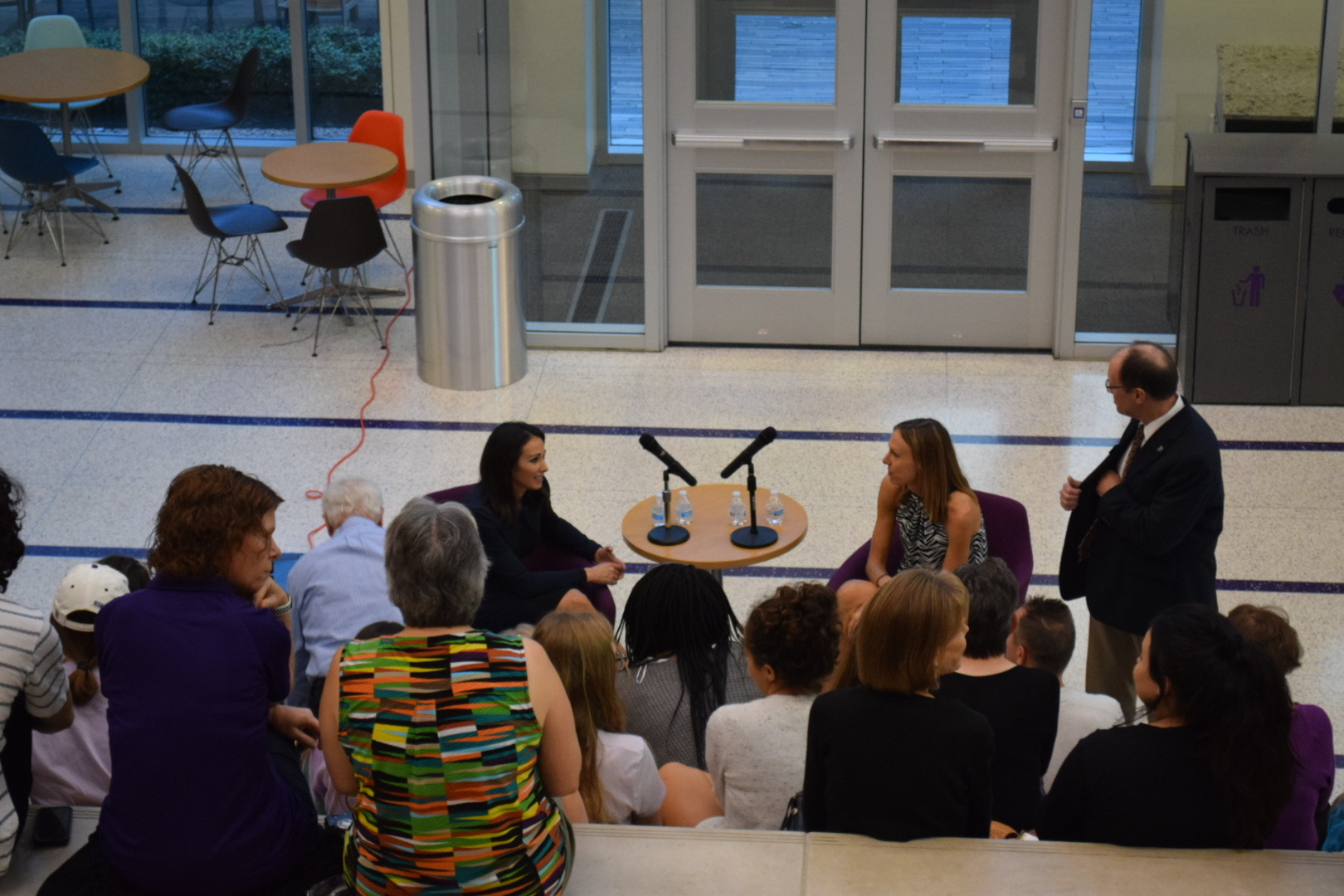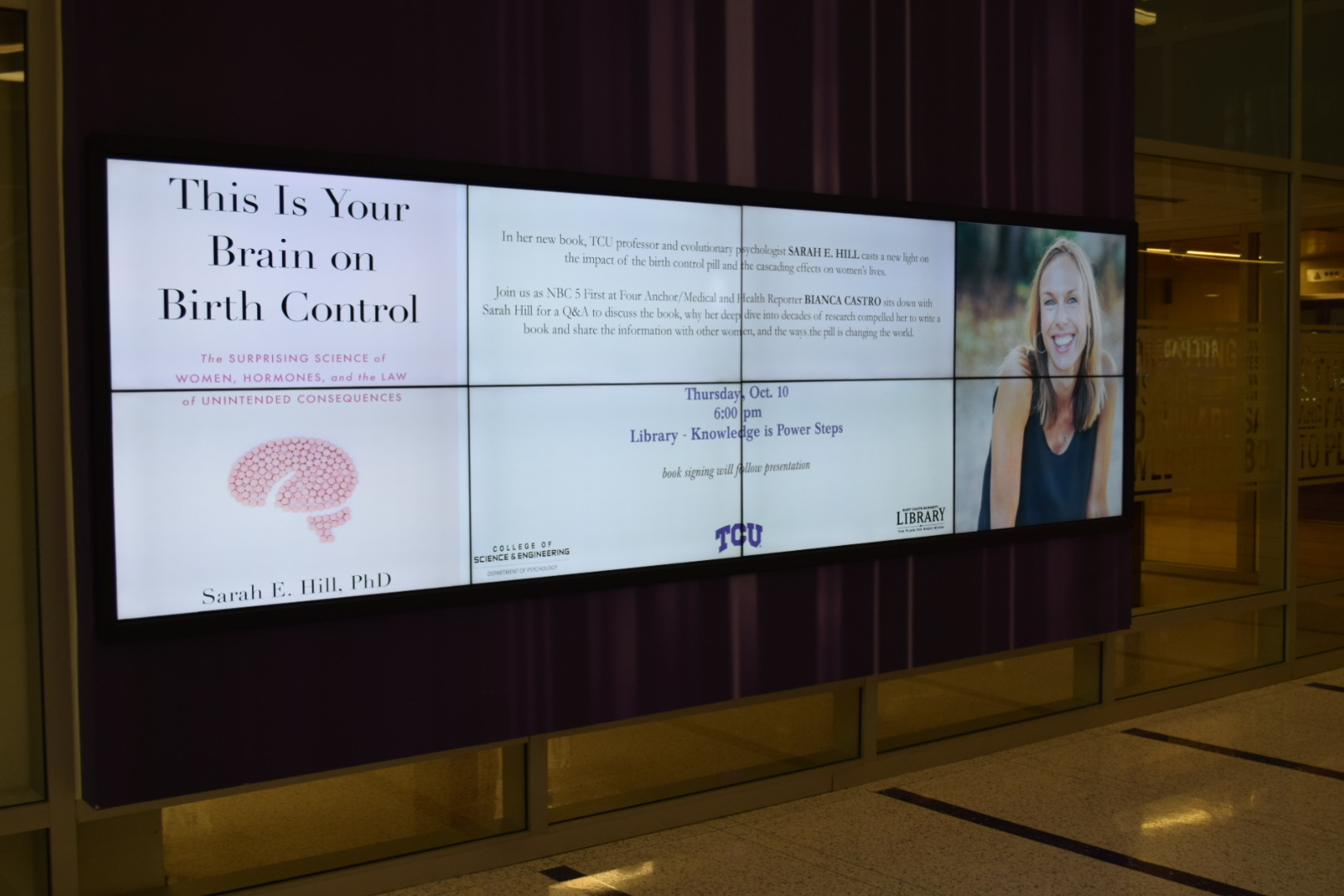Birth control may do more than prevent pregnancy, according to a TCU professor’s new book.
Professor Sarah E. Hill, a professor in the department of psychology, revealed that the pill may control the way women think, feel and act — and it’s all in her book “This Is Your Brain on Birth Control: The Surprising Science of Women, Hormones and the Law of Unintended Consequences.”
Because college students are typically the ones who take the pill, Hill wanted to inform them of its effect on your body. She, joined by NBC 5 anchor Bianca Castro, hoped to spread awareness by hosting an event in the Mary Couts Burnett Library earlier this month.
“I think it is important information for women to have so they can decide whether to get on the birth control pill or to not,” Hill said.
Castro learned of Hill and her book after she saw her appear on the Today Show
“When I got off of the pill, it felt like I had woken up again,” Hill said on the Today Show.

Despite studying health and the effects of hormonal behavior, Hill never thought the hormones in her birth control pill were influencing her brain. When she stopped taking birth control pills she started to notice changes not only in her body but in her life – suddenly, she enjoyed going to the gym and listening to music.
“These were things that I thought I matured out of, but I soon realized that it was just the birth control pill keeping me from doing those things,” Hill said. “Right when I got off of the pill, I instantly felt more vibrant and alive.”
Despite the negative effects it has on mental health, Hill said being on the pill allowed her to reach her dreams.
“For a woman, being on the birth control pill always is to have educational and career goals,” Hill said. “Not getting pregnant is a very big thing when you are trying to get a degree.”
Hill said it’s sex hormones that depict how we act and who we are.
“When it comes down to who you are, it comes down to your hormones and your neurological makeup,” Hill said. “We are always quick to talk about neurons instead of the role that hormones play.”

Lynnae Hodges, a senior dance and business major, said she attended the event because she was curious about Hill’s research.
“I have had personal experiences on the pill, and I have had other friends who have experienced side effects on the birth control pill,” Hodges said. “I would like to understand the science behind it.”

Abbie Johnson, junior psychology major, said she wants to learn more about the evolution of the birth control pill and its impact on women.
“I want to learn more about how the pill has developed since the 50’s and how it has changed women over the years,” Johnson said. “The birth control pill is still a new creation.”
Hill’s research and book aims to help women make an educated decision about birth control.







